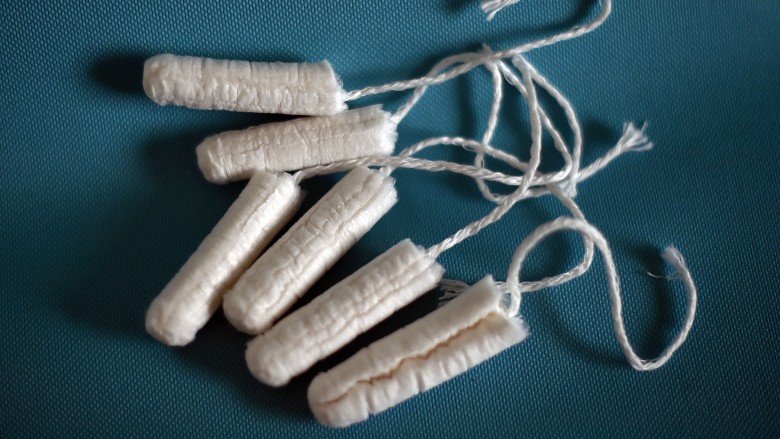What Really Happens When You Decide To Get The Depo Shot?
Remembering to take a birth control pill every day can be difficult. So difficult, in fact, that research shows 30 percent of women taking oral contraceptives miss a dose at least once per month. It's no wonder other forms of birth control that don't require taking a daily pill, are becoming more popular.
One of these options is the Depo shot (formally known as Depo-Provera) and it has been around since it was approved by the FDA in 1959! When used perfectly, it is 99.8 percent effective at preventing pregnancy — a rate that is reduced to 94 percent if a woman misses the appropriate window in which to have her quarterly appointment for the injection.
What is Depo?
The Depo shot is an injection containing a form of progestin used to prevent pregnancy. Like other progestin methods of birth control (like the "mini" pill and progestin IUDs), the Depo shot prevents pregnancy by doing several things including: thickening cervical mucus to prevent sperm from getting to the uterus, preventing ovulation (the release of an egg), and thinning the uterine wall making it more difficult for a fertilized egg to attach.
Each injection lasts for three months, so you only have to worry about remembering it four times per year. But how do you know if the shot is right for you — and what happens when you decide to get it?
Your doctor may have questions for you
Similar to other forms of birth control, your doctor may ask you some questions about your medical history and future plans to have children. However there are a few contraindications regarding the Depo shot, which means some people shouldn't use it.
According to the Depo drug label, you should not get the shot if you are — or suspect you may be — pregnant, have undiagnosed vaginal bleeding, have or suspect you have breast cancer, have a history of blood clots or cerebral vascular disease, have liver disease, or have a known hypersensitivity to any of the ingredients in the shot.
You have two options when it comes to getting the shot
The Depo shot must be given as an intramuscular injection in either the deltoid (shoulder) or gluteal (butt) muscle. If you have a problem with needles, you might choose to have the injection in your glute muscle so that you can't see it while it's happening.
If you'd rather keep all of your clothes on, the shoulder might be a better option for you. While the injection itself hurts no more than any other shot you may have had in the past, muscle soreness and slight bruising can occur afterward — similar to a flu shot. This can be a bit of a nuisance if you've had the injection in your shoulder, but could be a bit more of a pain if you had the injection in your glute and sit all day at work.
Your period may be affected
Similar to other progestin forms of birth control, the Depo shot can change your period flow and frequency. Most frequently, women may stop getting their periods altogether or may experience a lighter and less frequent period. That was part of the appeal in starting the Depo shot for Dana Humphrey.
Humphrey told me that not only did Depo seem to be one of the most effective choices, she liked the idea of not having a period. "As a very active person that swims, bikes, runs marathons, [and does] triathlons, I was interested in having no period," she said. Ultimately, Humphrey stopped using the injection because she is thinking about having kids someday.
"I wanted to get off hormones and start getting my period again," Humphrey said. "I'm not enjoying having it back but I think it's important. I would maybe like to have the possibility of having a child at some point and decided to get off the shot, and off hormones." Other women do not lose their periods entirely though. Some women spot throughout the month with no real consistency while a few women might experience near-constant bleeding.
You could gain weight
While weight gain is something that women have shared anecdotal evidence of, regarding pretty much every kind of birth control, the Depo shot is one of the only forms of birth control that has been shown through research to cause weight gain, though not every woman will experience this.
According to studies, after usage over three years, Depo users gain an average of just over five kilograms (about 11 pounds) more than those who weren't using Depo (including those using other forms of birth control). Not all women experience weight gain and it may vary depending on the stage of your life.
I spoke with Rachel Hill from Los Angeles who has taken Depo off and on since she was young. "When I first took Depo in my 20s I didn't gain any weight," she said. "Now that I am 40 I have put on more than 15 pounds from taking the shot." Still, Hill said that she would recommend Depo to others because the convenience is worth it.
There may be emotional side effects
One of the known side effects of the Depo shot is changes in mood, including mood swings, increased risk for depression, and even the possibility of a "flat affect", in which it is difficult to feel all emotions. Naomi Hattaway from Ohio told me that in addition to an increase in facial hair growth, she found that after starting Depo she had a decrease in her ability to be emotional.
"I noticed I wouldn't tear up during sad movies [anymore]," she said. "I felt almost flat-lined and didn't experience the same highs and lows of my normal emotional state of being." After four years of using Depo, Hattaway decided to call it quits and is happy with that decision. "[I] would not recommend it to anyone," she said.
Bone density could be a concern
In 2010 the FDA revised its recommendations on the use of the Depo shot for contraception in response to research that it causes decreased bone density. Still, none of the women I spoke with could remember being told that this could be an issue when they started the injection. Jesse Nicole who is 37 now first went on depo when she was 19 because remembering to get the injection every three months with a two-week window seemed more reasonable to her than trying to remember a pill every day.
Unfortunately, she had pretty severe complications. "I was diagnosed with osteoporosis at the age of 26," she told me. "Nobody told me that osteoporosis or bone loss was a risk when on Depo. I was devastated," she said, adding that she also experienced headaches and hair loss.
The research on bone density loss while using Depo is mixed. Some sources suggest that the loss is associated with prolonged use of Depo and that it is almost entirely reversible. Other sources suggest that bone loss is actually the greatest within the first two years and that in some cases may not be reversible. If you have concerns about bone loss, it is important to talk to your doctor about the risks associated with Depo.
You may feel generally unwell
Leslie Burch, who is 27 started depo when she was 21. Burch told me that she often had side effects immediately following her injection every three months. "It would give me hot flashes," she said "I would feel bad for the first week and have no energy." While she didn't experience some of the other side effects that are common with depo, the hot flashes and general ill feeling became too much for her and she stopped the shot in 2014.
While the Mayo Clinic lists weakness and fatigue as a possible side effect of Depo, there is little research on either this, or any hot flashes experienced by women who are using it. Regardless, the side effects were enough to make Burch stop using Depo and seek another form of birth control.
Other things to watch out for
I spoke to Karina R. from St. Petersburg, Florida who told me her Depo experience was a nightmare. "Within the first few weeks of starting the injections, my sex drive went away completely," she told me. "I was a 17 year old with raging hormones in a new relationship with a guy that totally rocked my world before the injections, then after, I did not want sex at all — I was never in the mood."
Karina told me that her sex drive wasn't the only thing that changed. "Every little thing irritated me. I was so stressed out all of the time with really no apparent reason," she said, adding that her doctor actually put her on medication to counter the emotional changes. "My hormone levels were really low and I was diagnosed with premenstrual dysphoric disorder [PMDD] and given progesterone supplements. It was a nightmare and my gynecologist told me that these were normal side effects." Karina ended up switching doctors and her new doctor told her that what she was going through wasn't normal at all and that Depo was not the right choice for her. While she has chosen to eliminate hormonal birth control altogether, Karina said the effects are lasting. "To this day, I still feel like I deal with the side aftermath."
Getting pregnant could take some planning and patience
Even though the Depo shot must be given every 12-13 weeks to be considered effective for preventing pregnancy, you may not be able to get pregnant immediately after stopping the shot. In order for the hormones to clear out of your system entirely and for your ovulation and menstruation to return to normal, you may have to wait anywhere from eight to as long as 18 months.
For this reason, if you are trying to avoid pregnancy for the short-term, but think you might want to get pregnant within the next year, the Depo shot is likely not your best option. If, however, you do not anticipate wanting to get pregnant anytime soon, this may not be a concern for you.
You may experience side effects after you stop
Regardless of your desire to eventually get pregnant, the fact that it takes the Depo shot so long to clear your system also means that it may take longer to get rid of any side effects you experience from the injection.
In fact, some women report that they experienced symptoms that started only after they stopped the injections. A 2009 report by ABC News claimed that many women wrote in about their withdrawal symptoms from stopping Depo, but that there is virtually no scientific research into what happens when the injections stop.
Is Depo right for you?
Although the side effects can be difficult to manage for some women, others swear by the Depo shot. Ashley Wirtz from Portland, Oregon is one of those who loves it. "I had taken the pill before and was so bad about remembering to take it everyday, that I knew I should try a different birth control — that way I would not have to worry about reminding myself all the time," she said. "If you are anything like me, Depo is perfect! It's a no brainer for women who are super busy."
Still, finding the right birth control is a very personal decision that is best made with your doctor. Dr. Kendra Segura, a gynecologist practicing in Southern California, agreed that birth control is very individualized, but that there are lots of options out there if you decide Depo isn't right for you. "You can always change your birth control," she added. "There is a birth control for everyone." Some additional options to consider discussing with your doctor include birth control pills, intrauterine devices (IUDs), and the birth control implant, to name just a few.












